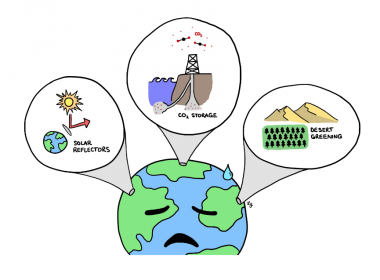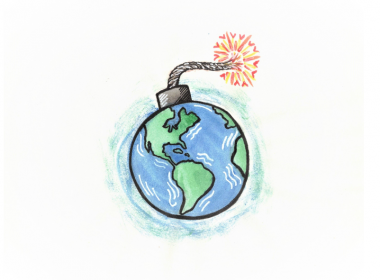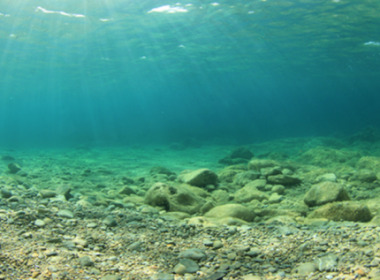The conversation around geoengineering, otherwise known as climate intervention or climate engineering, is gaining traction as climate projections remain dire. Offering many salient yet controversial ways to mitigate Earth’s rising temperatures, geoengineering methods include spraying sulphate particulates into the atmosphere to block out solar radiation, fertilizing the ocean with iron[Read More…]
Tag: carbon dioxide
Open Future Essay Competition winner covers climate change and law
McGill law student Larissa Parker recently won the highly competitive Open Future Essay Competition. In her winning essay published in The Economist, she wrote about extending legal rights to future generations to fight climate change. Parker addressed one of the most disheartening realities of climate change: Though we are already[Read More…]
Can you sea the floor?
From the heights of the ozone layer to the depths of the ocean, greenhouse gas emissions have far reaching impacts and damage natural systems in often unexpected ways. A recent study conducted by McGill researchers found that the seafloor is rapidly dissolving due to manmade CO2 emissions, with particularly notable[Read More…]
Skepticism in climate science: Reasonable or regressive?
Ninety-seven per cent of scientists agree that humans contribute to climate change. Patrick Moore, a co-founder of Greenpeace, falls into the other three per cent. “Even if we are causing [climate change], it’s hardly anything,” Moore said in an interview with The McGill Tribune. He describes himself as a “sensible[Read More…]
McGill-led company, Carbicrete, designs carbon neutral concrete
The process of manufacturing cement—the primary material used in the production of concrete—accounts for five per cent of the world’s carbon dioxide emissions. The emissions from cement production are unsustainable at the planet’s current rate of development. However, Carbicrete, a McGill-led technology company, has developed patented technology that not only[Read More…]








